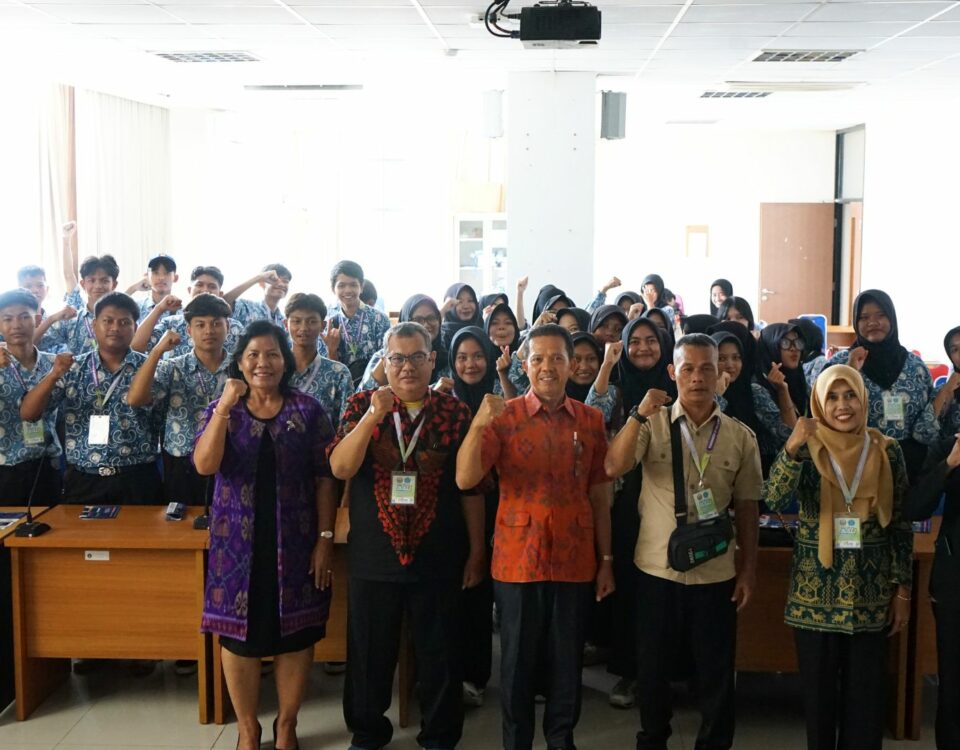Singaraja- Gender can never be separated from socio-cultural construction and has become part of local wisdom. In general, gender refers to men and women. In society, men are interpreted as masculine and with other attributes such as manly, rational, tough, responsible, and so on. Meanwhile, women in the feminine interpretation have the social attributes of being gentle, emotional, talkative, crybaby, and so on.
The differences in roles between men and women are still an interesting topic to discuss. This was discussed specifically in a Public Lecture with the theme Asia Ethnoscience and Local Wisdom which was held by the Ganesha University of Education (Undiksha) through the Sociology Education Study Program in collaboration with the Eurasia Foundation, on Monday (19/2/2024).
This public lecture raised the topic “Gender and Local Wisdom in Asia” presented by Dr. Harmona Daulay, S.Sos., M.Si. from the University of North Sumatra. Exposure begins with an environment that introduces gender, namely the family. Meanwhile, the second group is the community. Gender and sex are often equated, even though they have different meanings. Gender speaks about social culture, refers to responsibilities and roles, and can change and change according to location and era. Meanwhile, sex is natural, biological, and permanent (cannot change).
Men and women are different, but that doesn’t mean they are differentiated. Men and women now have the same rights and opportunities in the social environment. The practice of gender equality must involve many parties so that social, economic, cultural, and political progress can be realized.
Many countries in the Asian region are still facing various complex challenges in fighting for gender equality. This happens because norms and patriarchy are still strong in society. Harmona said that feminists think that this gender issue occurs because the patriarchal value environment has dominance and seniority, men are considered more cultured, women are closer to nature, men are owners women are nurses, and men are the universal benchmark.
In local wisdom, women have a significant role in maintaining the environment and contributing to society through various efforts and methods, especially through their concern for children and families. One critical aspect of women’s role in local wisdom is as recorders of oral history and keepers of oral traditions. Efforts to fight for gender equality can also be seen from various movements carried out by women in local wisdom in Asia, one of which is the Chipko Movement in India, specifically in the Rajasthan region. Women play a key role in maintaining and continuing classical music and dance traditions. Another country is Japan, which often involves women in traditional arts and crafts. Meanwhile, in Indonesia itself, the women’s movement in local wisdom can be seen from the many tribes in Indonesia that have women as traditional holders in the arts, for example, the art of weaving.
The feminist movement promotes gender issues which also become an ideology as well as an advocacy movement for gender awareness and justice in all aspects of life. Feminists want to eliminate sexism, exploitation, and oppression. Harmoni further said that based on a survey conducted by the World Bank as reported by Alinea. id 2019, there are only 6 countries that have succeeded in having perfect gender equality, namely Belgium, Denmark, France, Latvia, Luxembourg, and Sweden. Therefore, gender equality is an important effort to achieve justice and equality in society. Through the feminist movement and advocacy for gender equality, it is hoped that a more just and inclusive world will be created, namely that women and men have the same rights, opportunities, and treatment without discrimination based on gender. (hms)





